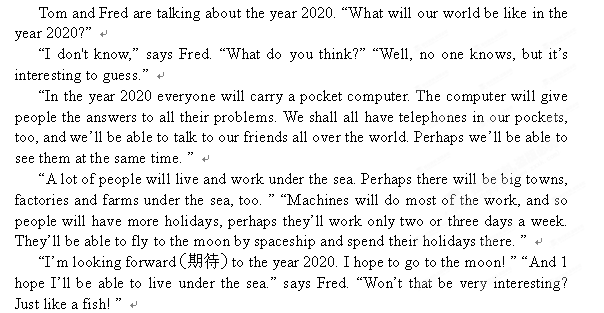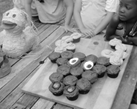
科目: 來源: 題型:閱讀理解
| Name: Doruk Born: 1993 Country: Turkey Writing languages: Turkish, English Hey! I’m Doruk and I live in Turkey. I like to play sports and watch films. My favourite lesson is maths and I’d like to be a computer engineer in the future. If you like watching films too, write to me! |
| Name: Pauline Born: 1993 Country: the USA Writing language: English Hi! My name is Pauline. I am a 16-year-old girl who likes movies and cartoons. I love talking to friends, too. The only problem is I have no friends. I am looking for a girl penfriend around my age. Write me! |
| Name: Vicky Born: 1994 Country: Greece Writing languages: English, French Hello, my name is Vicky and I’m looking for a penfriend between 16 and 20 years old. I’m a tennis and basketball player. I love music and I can play the violin. I enjoy shopping, meeting new people, and learning about new cultures. I have a lot of interests so I won’t be a boring penfriend! I’m waiting for your answer. |
| Name: Ashley Born: 1996 Country: UK Writing language: English Hi, I’m Ashley. I’m 12, much more mature(成熟的), though. I love Japan. I love Japanese cartoons and J—pop music. So if you’re Japanese, feel free totell me stuff about Japan! |
查看答案和解析>>
科目: 來源: 題型:閱讀理解
查看答案和解析>>
科目: 來源: 題型:閱讀理解
查看答案和解析>>
科目: 來源: 題型:閱讀理解

查看答案和解析>>
科目: 來源: 題型:閱讀理解
查看答案和解析>>
科目: 來源: 題型:閱讀理解
查看答案和解析>>
科目: 來源: 題型:閱讀理解
查看答案和解析>>
科目: 來源: 題型:閱讀理解
查看答案和解析>>
科目: 來源: 題型:閱讀理解
查看答案和解析>>
科目: 來源: 題型:閱讀理解
Denmark A flag is flown outside a window to show that someone who lives in the house is having a birthday. Presents are placed around the child’s bed while he is sleeping so he will see them at once when he wakes up. A flag is flown outside a window to show that someone who lives in the house is having a birthday. Presents are placed around the child’s bed while he is sleeping so he will see them at once when he wakes up. |  India IndiaUsually Indian children wear white to school. However, on their birthdays, children wear colored clothes to school and give out chocolate to everyone in the class. Their best friends help them to do this. |
Japan The birthday child wears new clothes to mark the special time. Certain birthdays are more important than others. These are the third and seventh for girls and fifth for boys. The birthday child wears new clothes to mark the special time. Certain birthdays are more important than others. These are the third and seventh for girls and fifth for boys. | Holland The birthday child receives an especially large present. The family also puts flowers on the birthday child’s chair to make it beautiful. The birthday child receives an especially large present. The family also puts flowers on the birthday child’s chair to make it beautiful. |
查看答案和解析>>
湖北省互聯(lián)網(wǎng)違法和不良信息舉報平臺 | 網(wǎng)上有害信息舉報專區(qū) | 電信詐騙舉報專區(qū) | 涉歷史虛無主義有害信息舉報專區(qū) | 涉企侵權(quán)舉報專區(qū)
違法和不良信息舉報電話:027-86699610 舉報郵箱:58377363@163.com